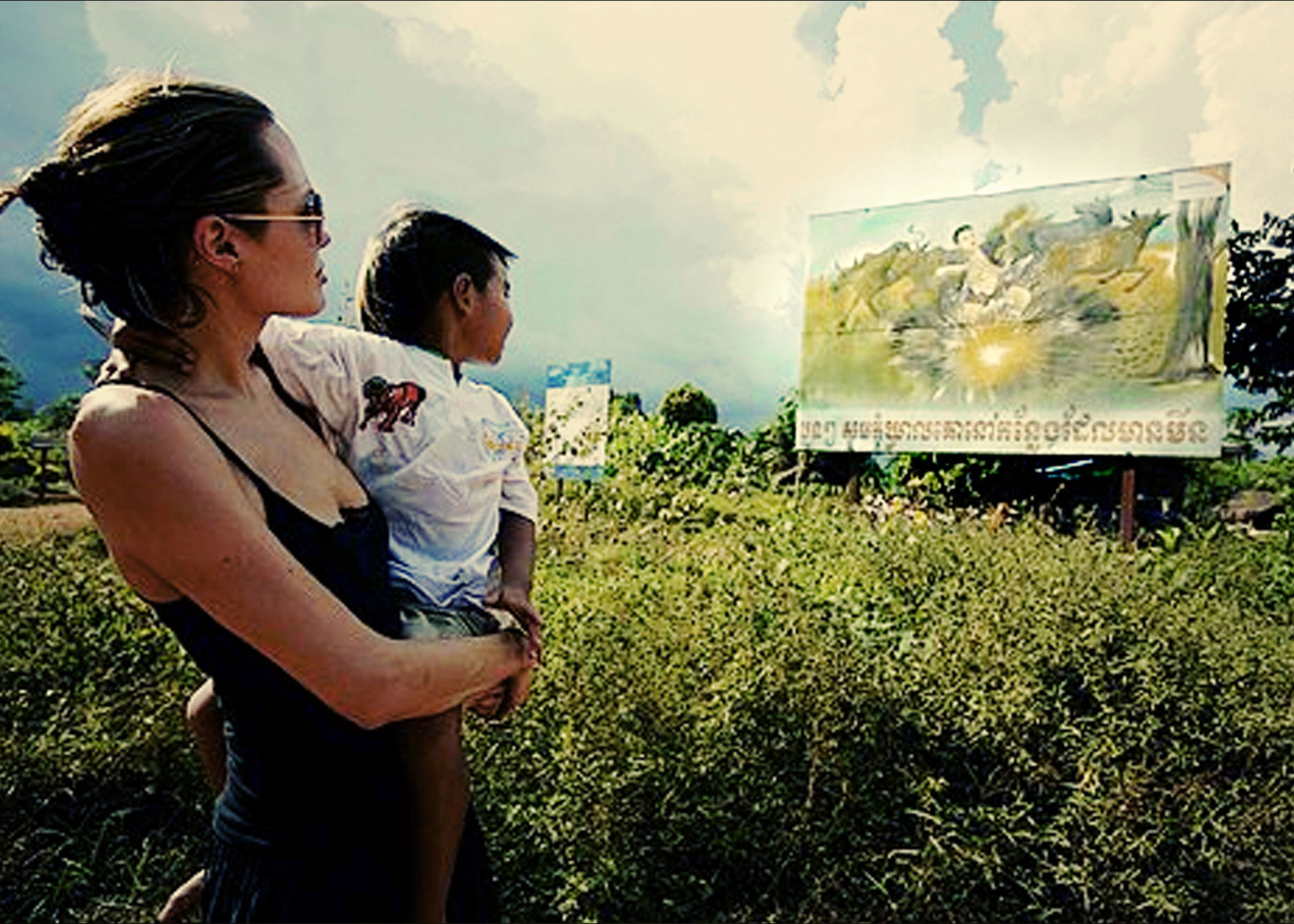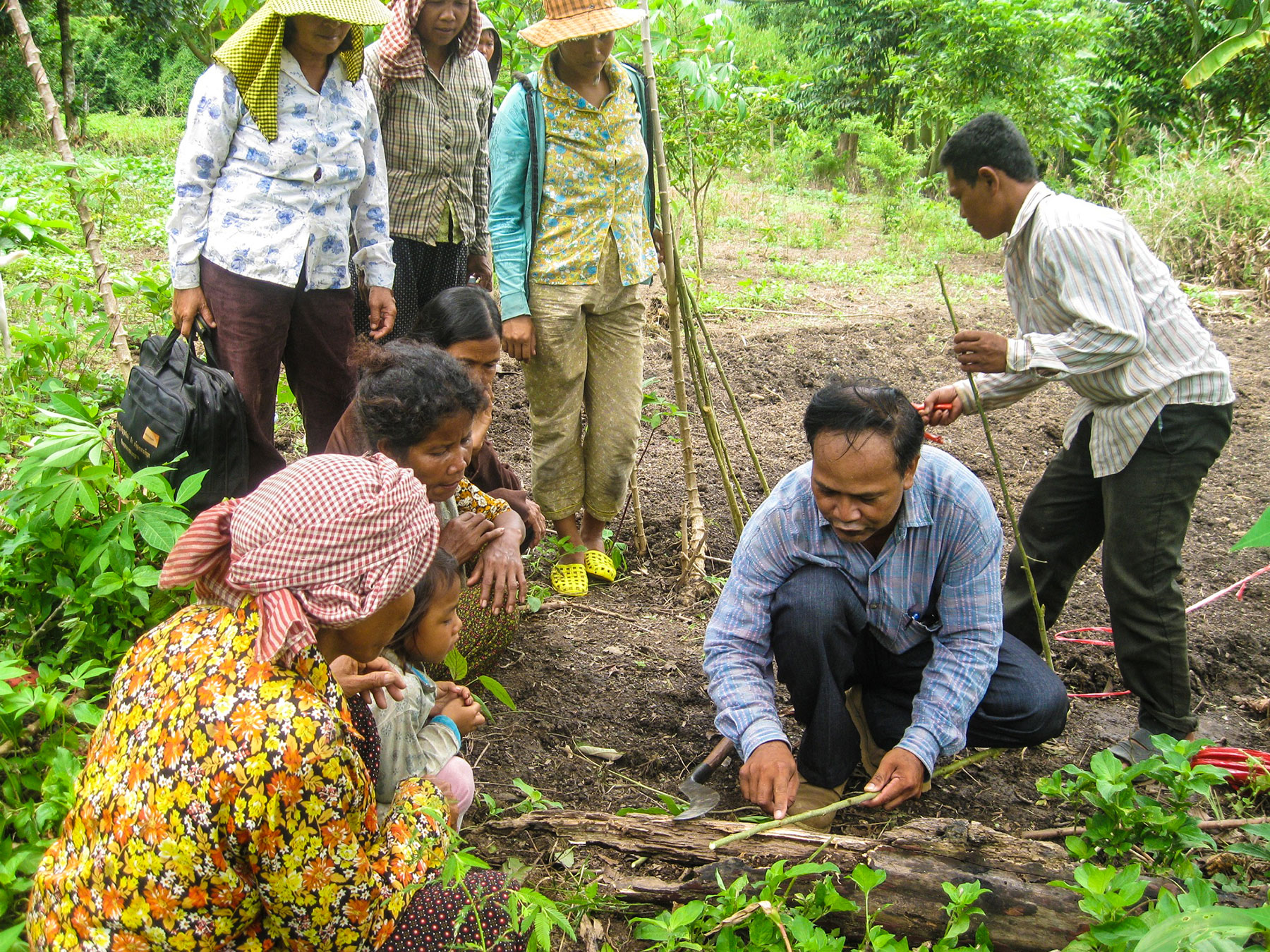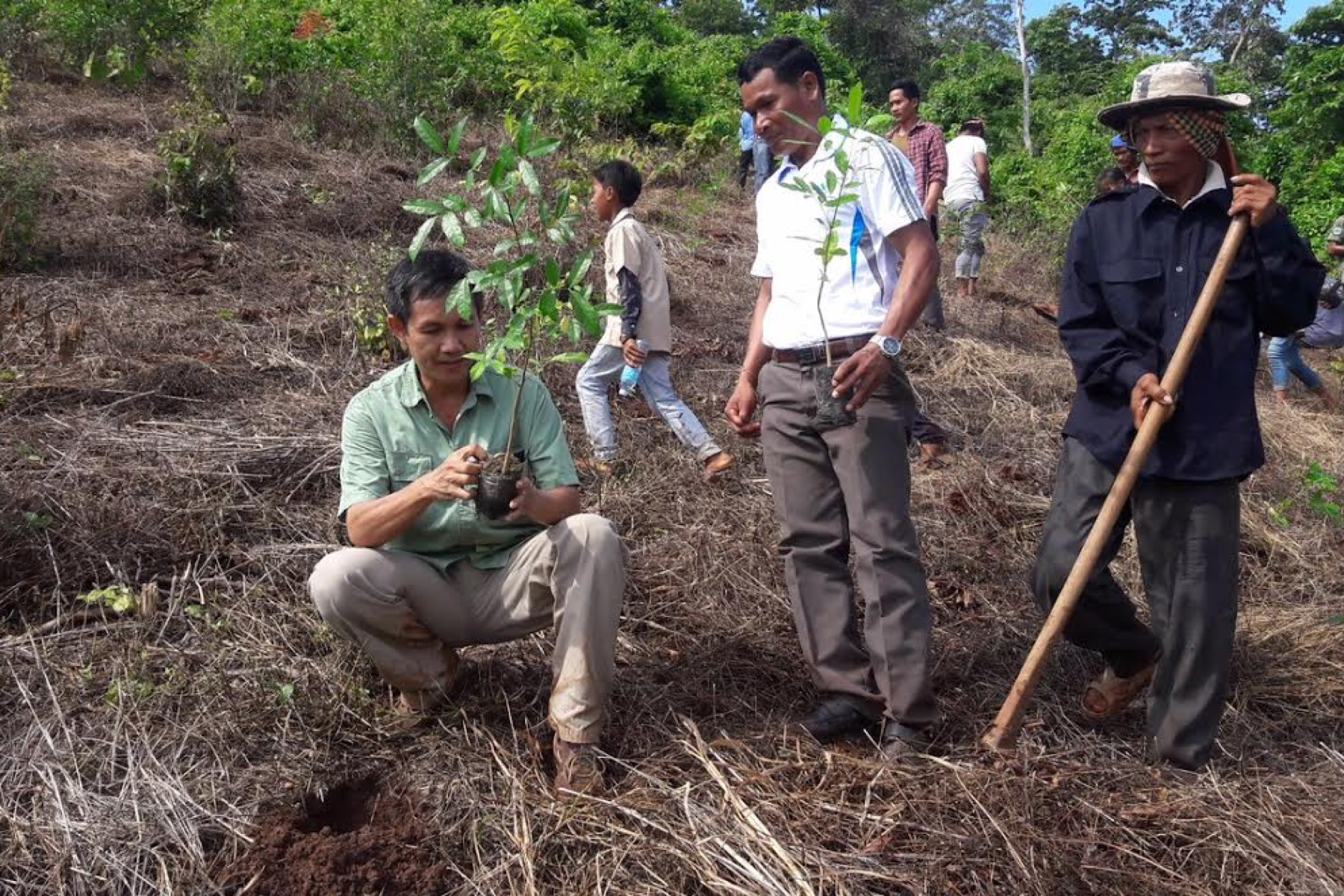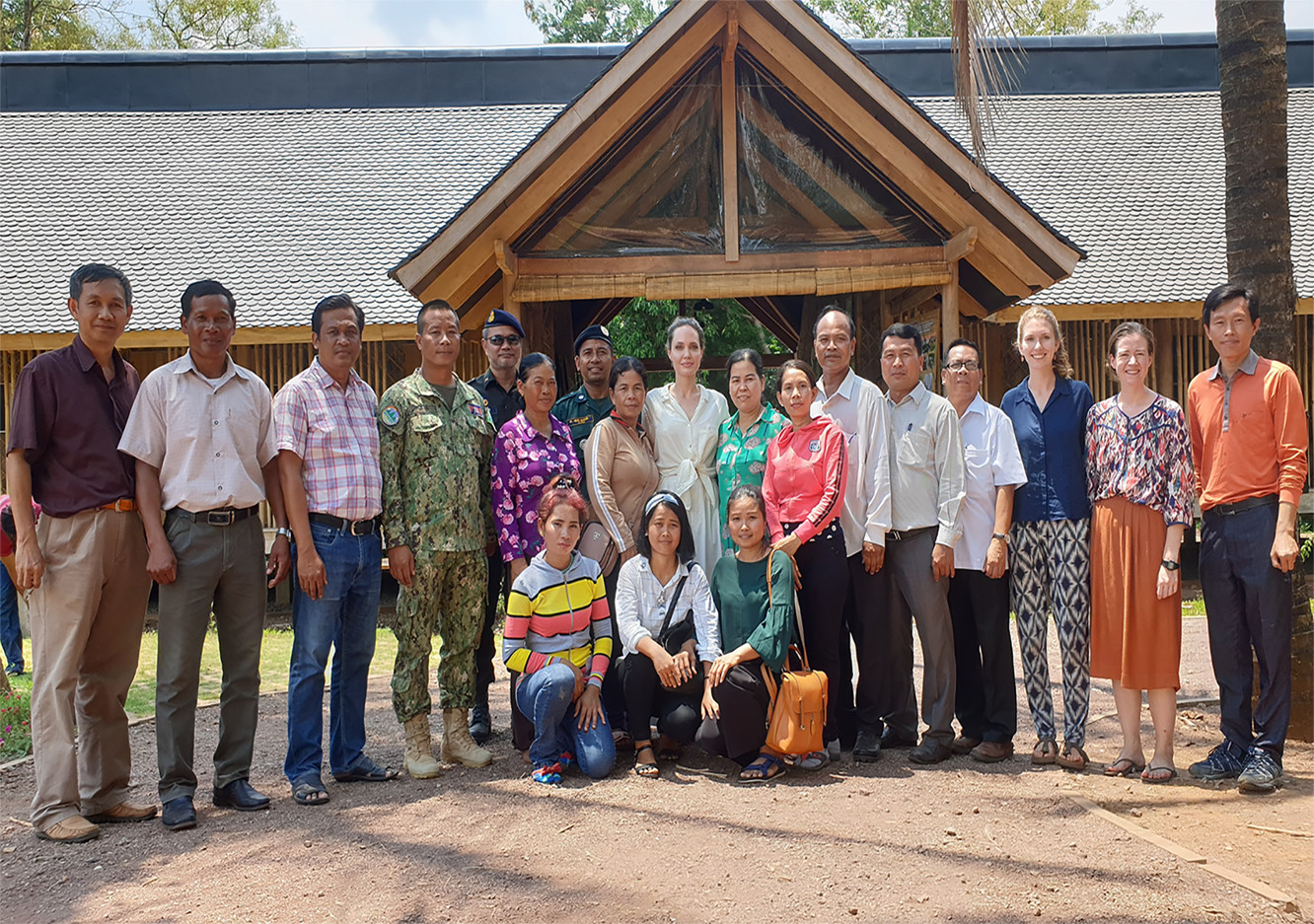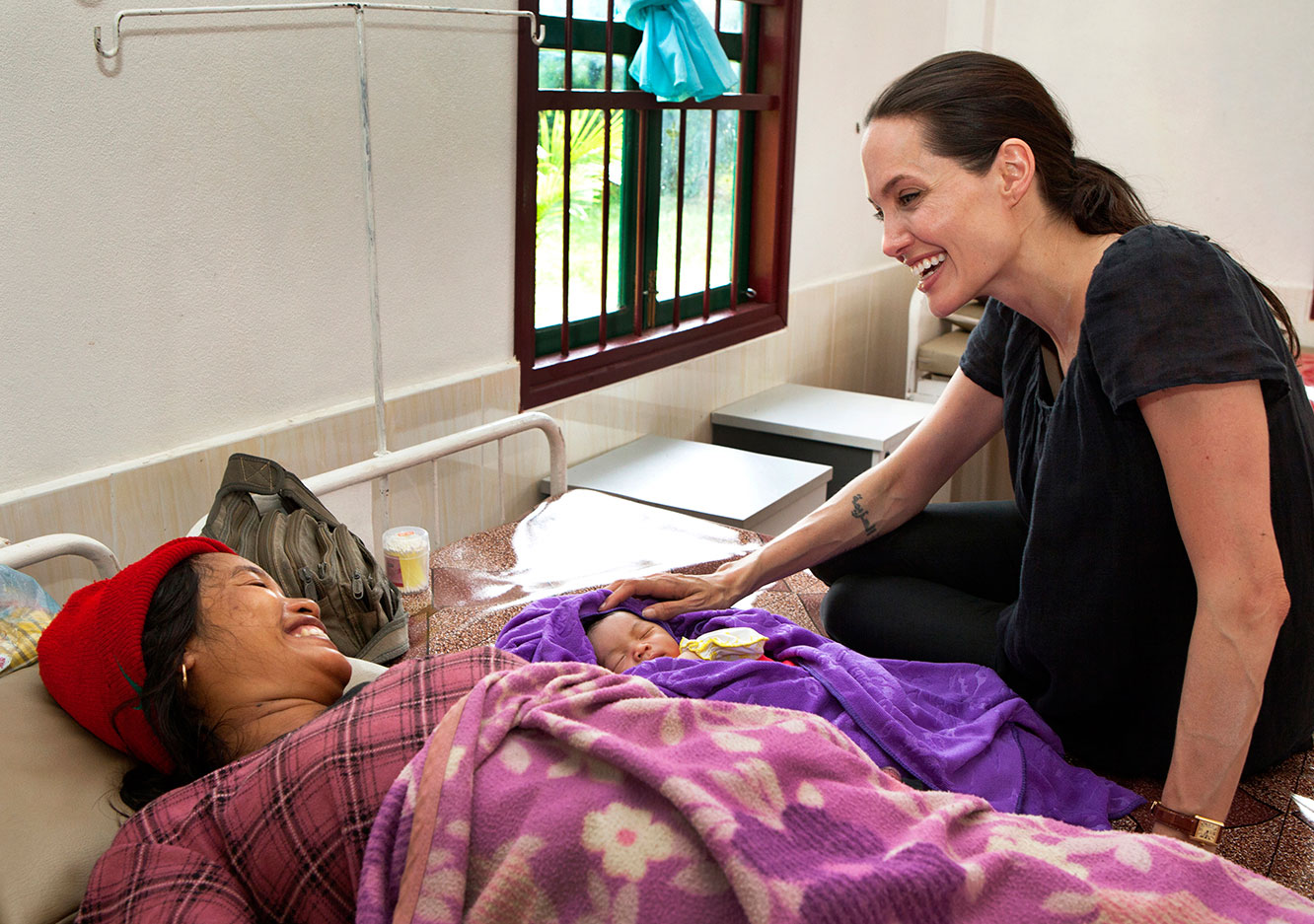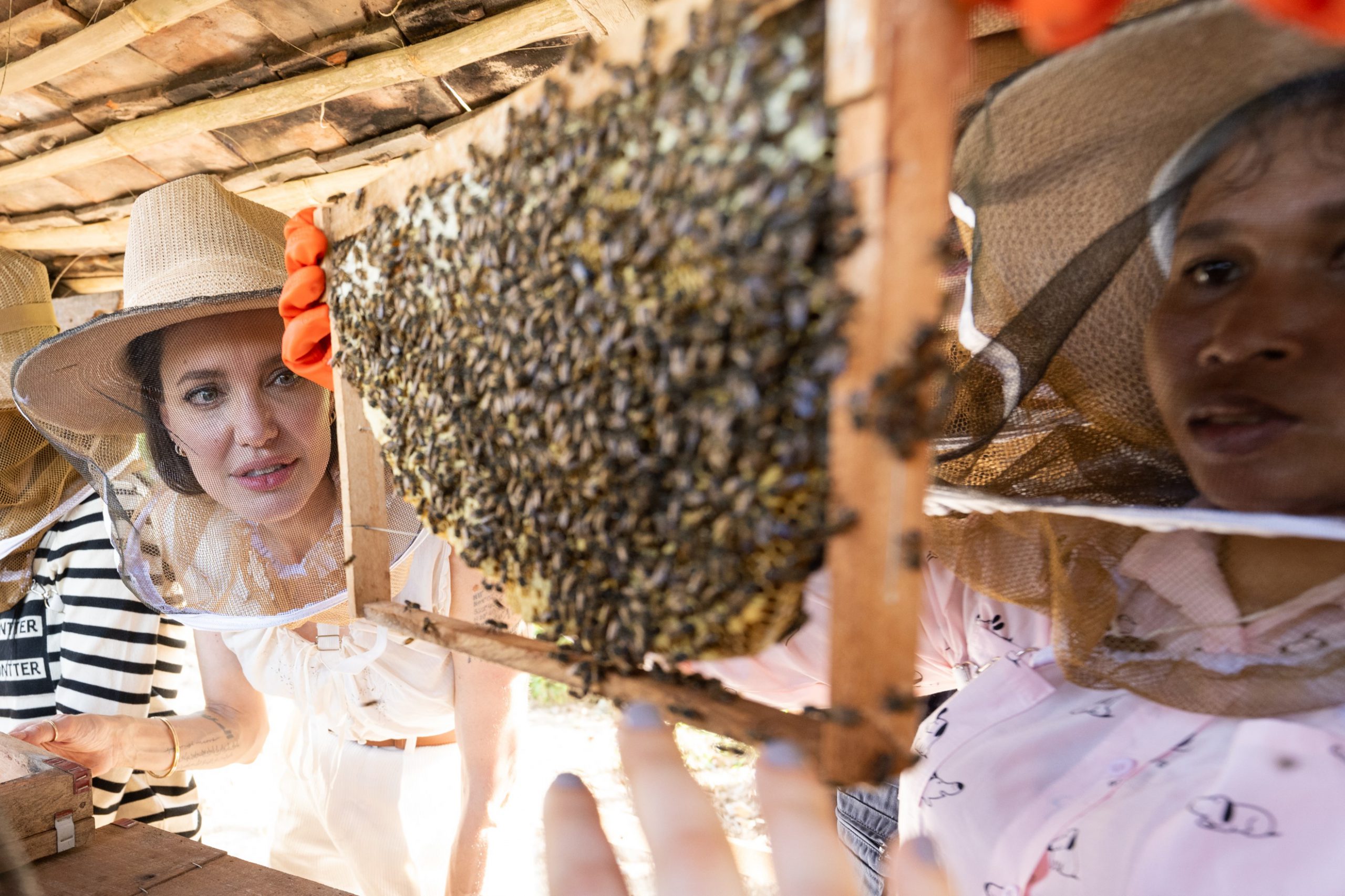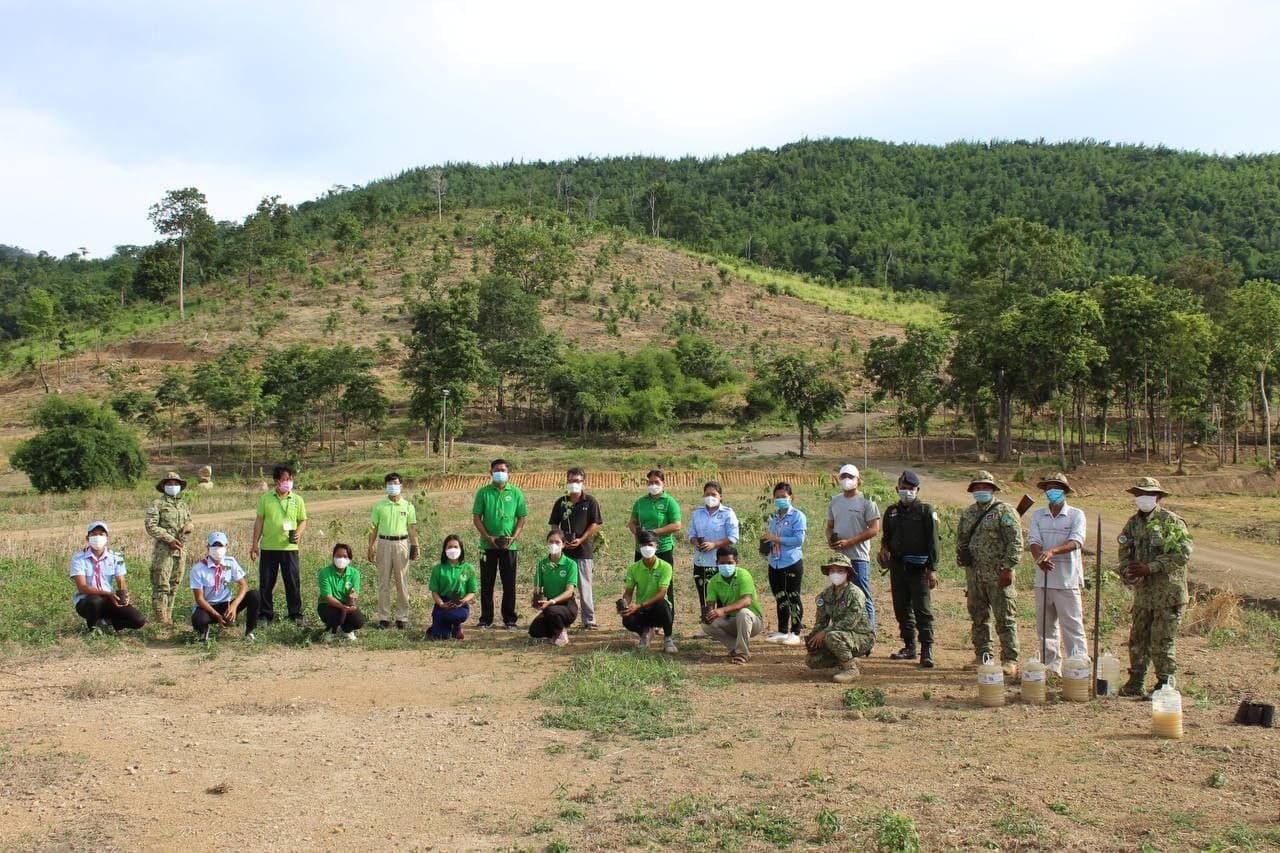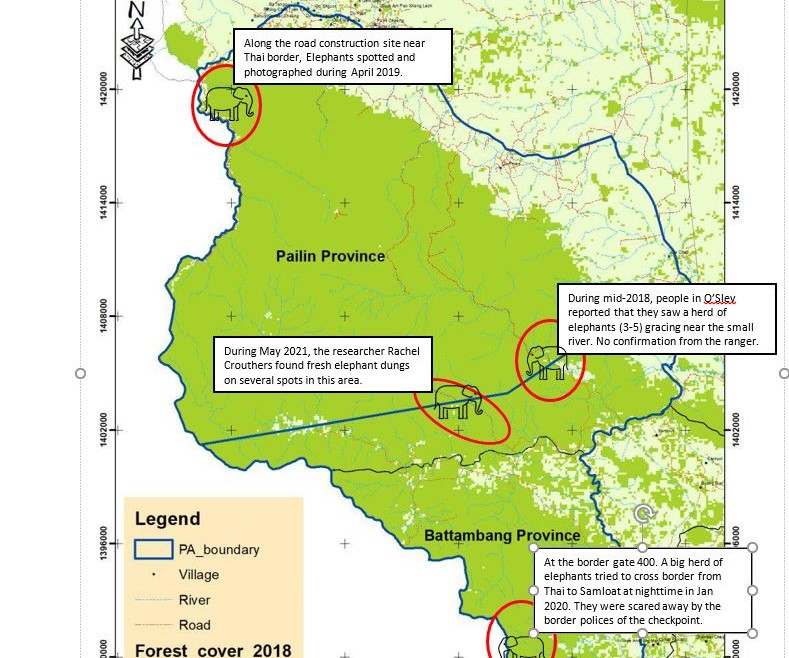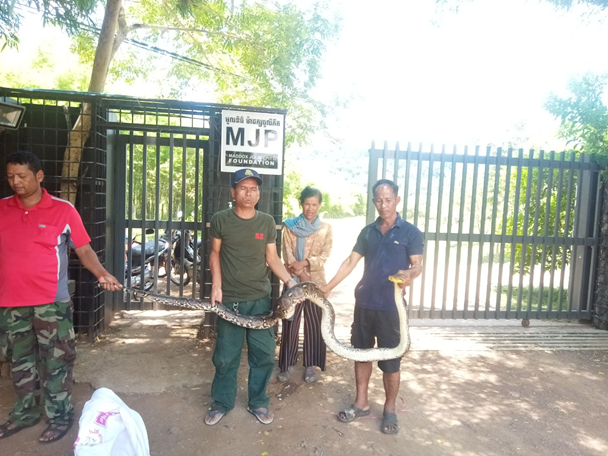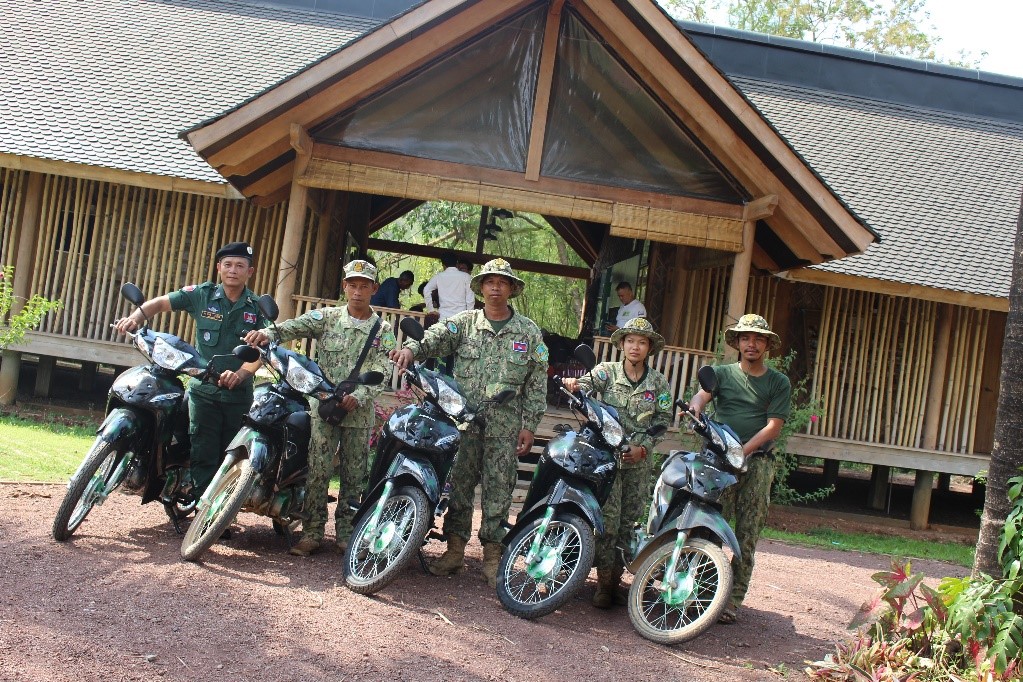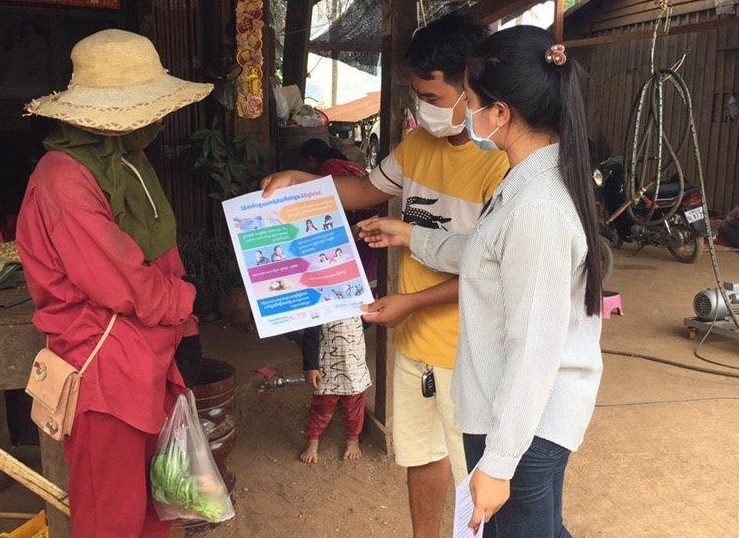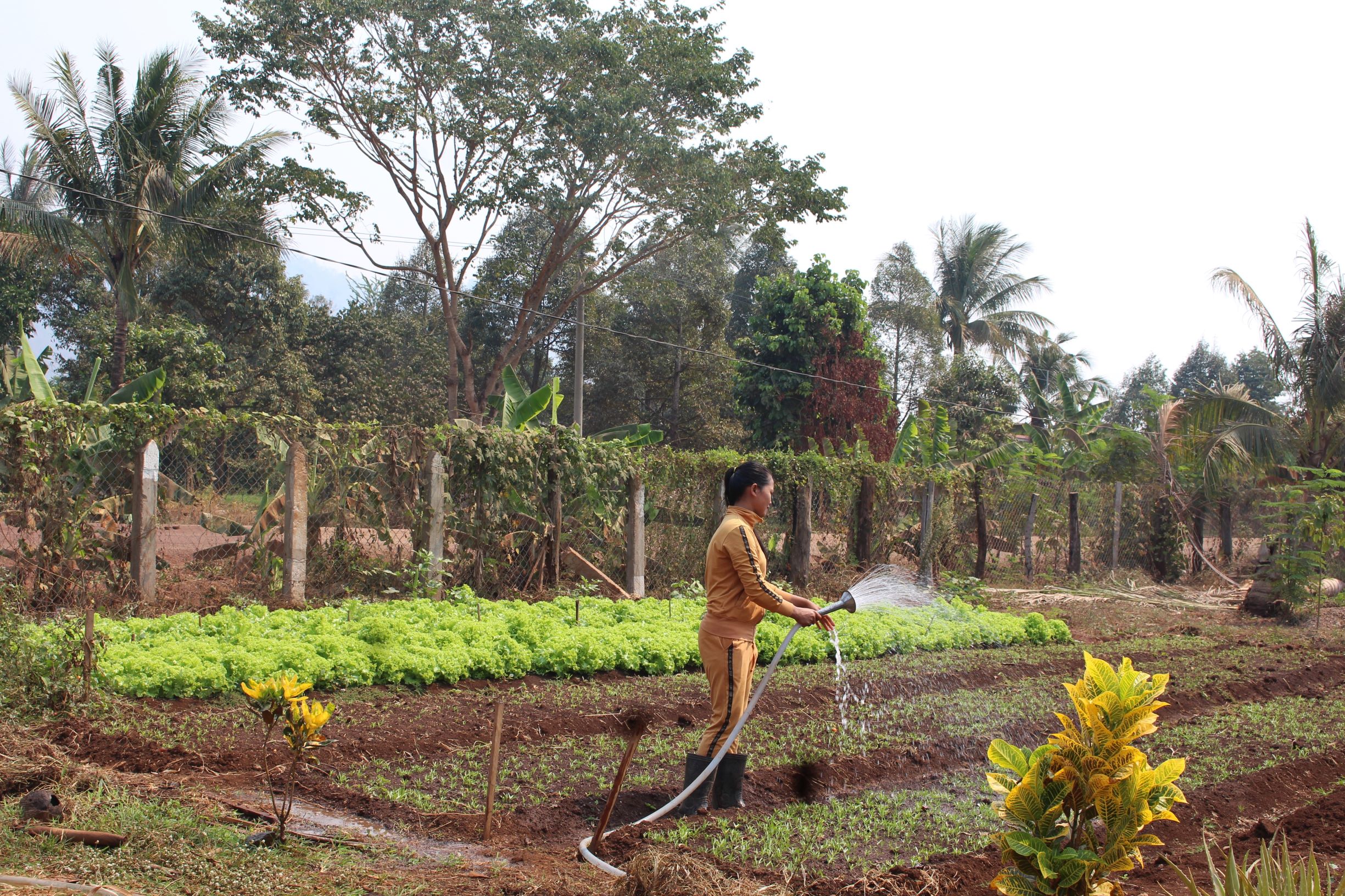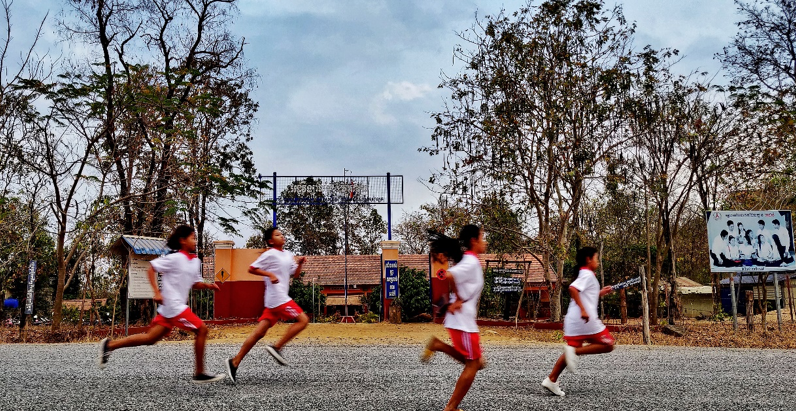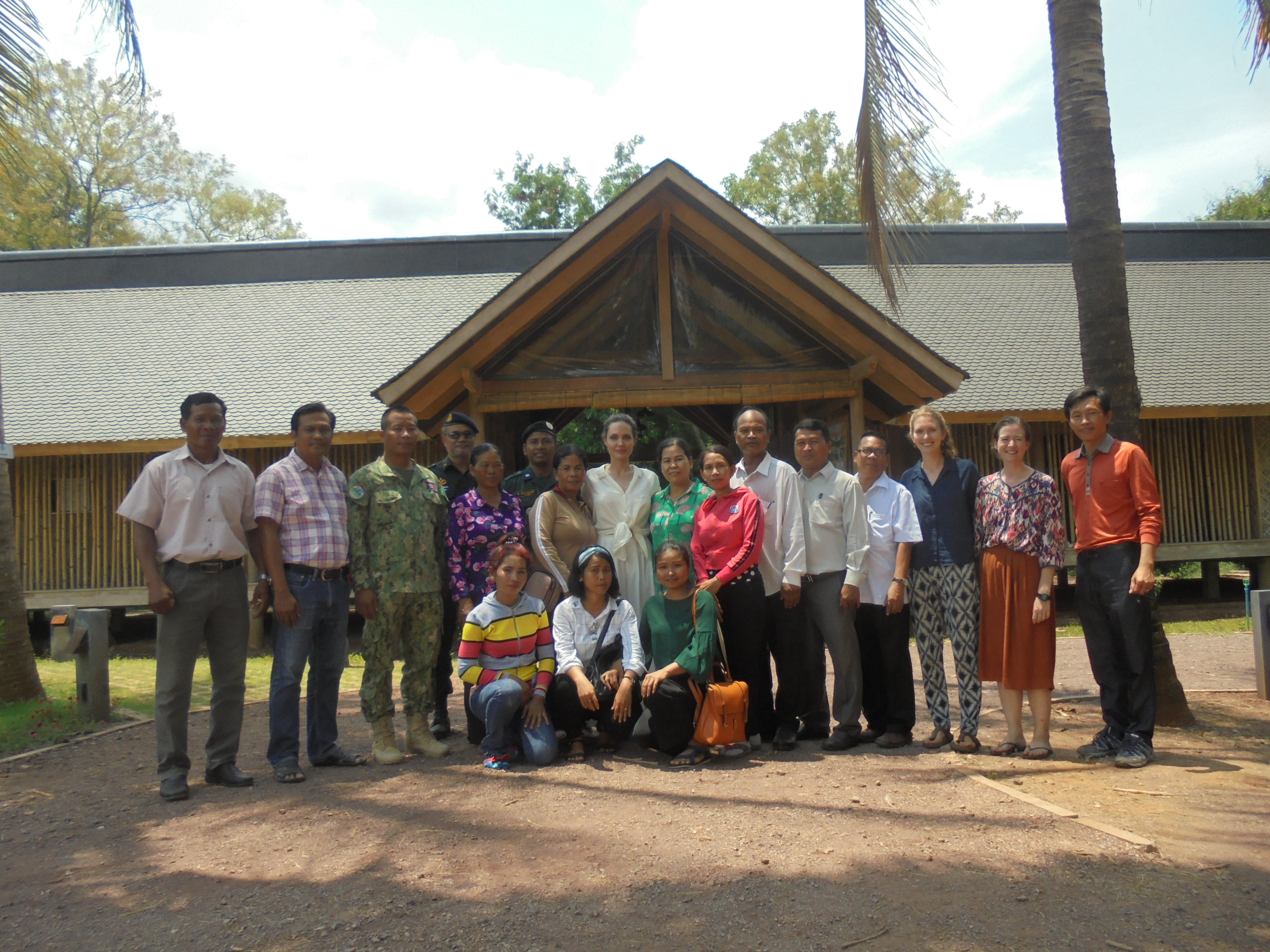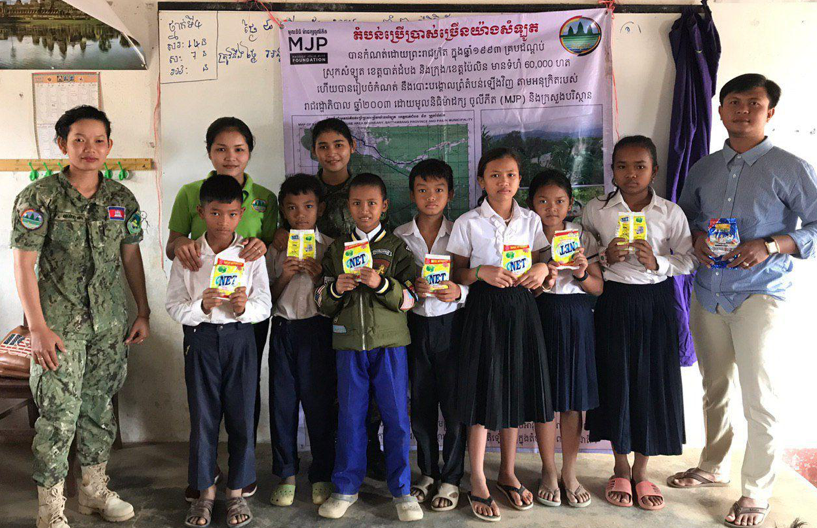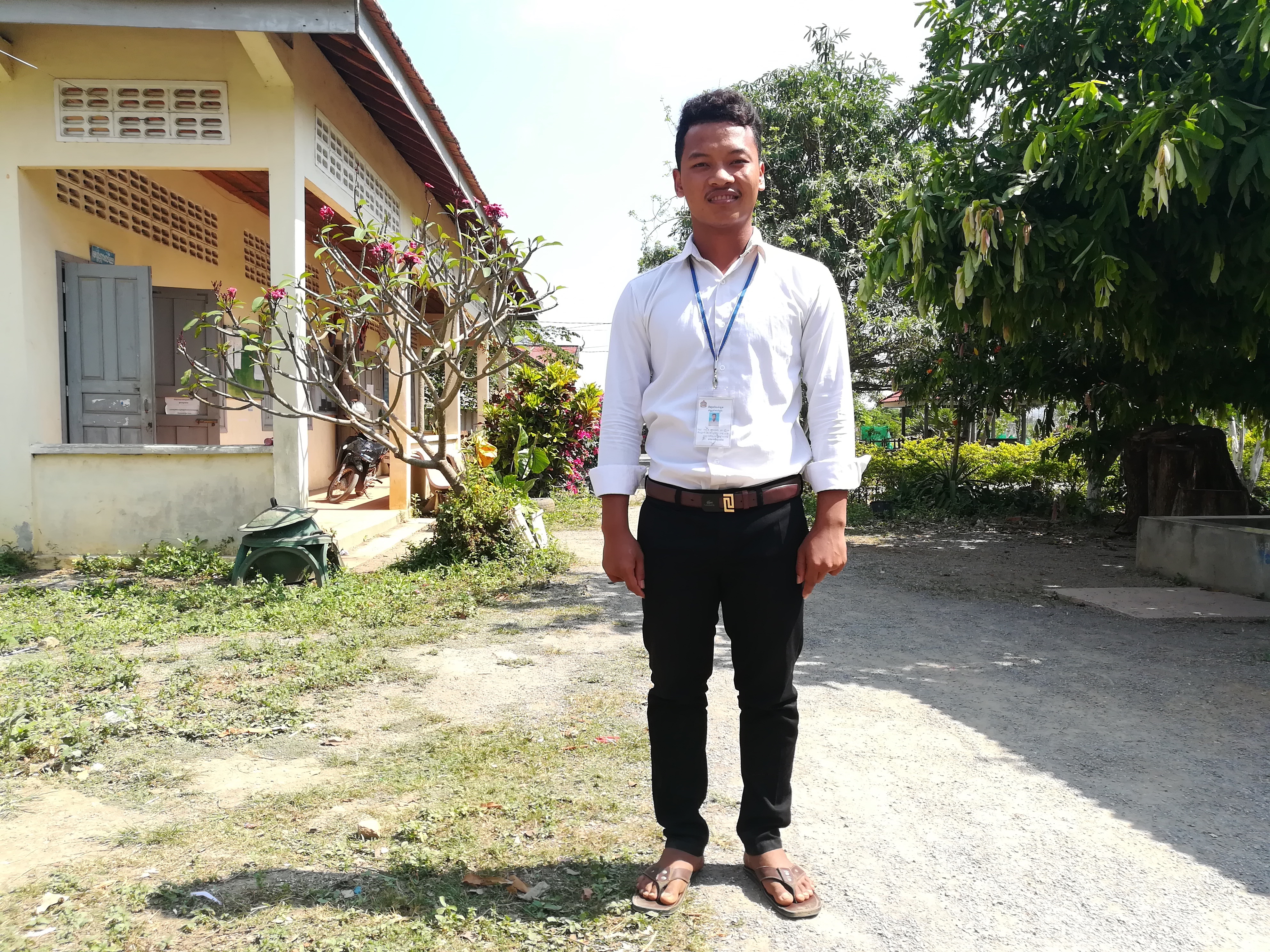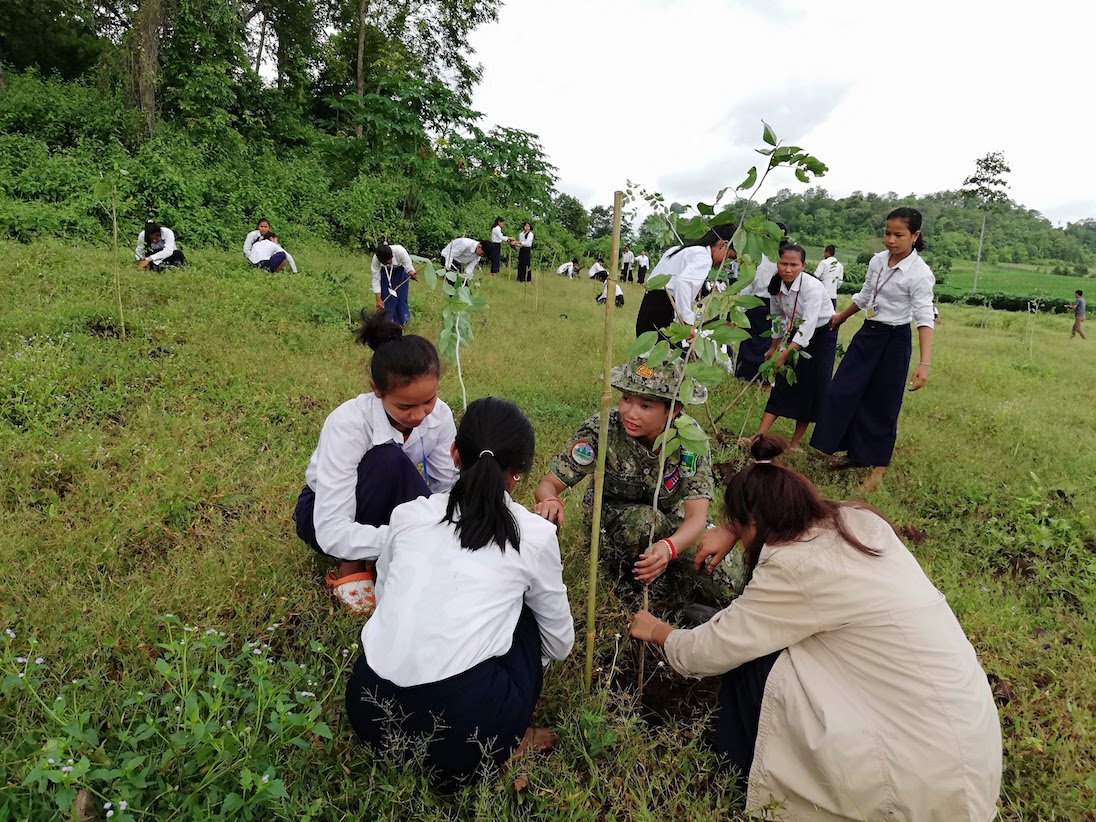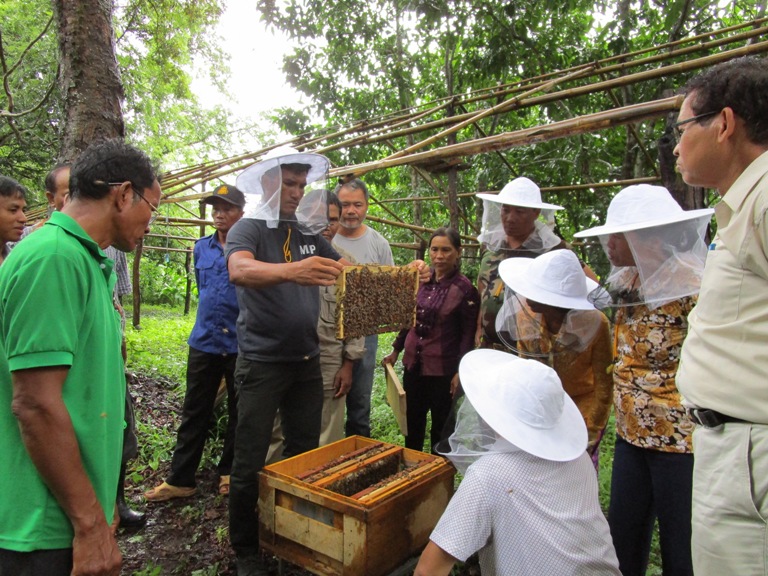The Covid-19 virus, which developed from the capture and sale of endangered wildlife, is now having significant impact on the capacity of countries to protect wildlife across Africa and Asia. Globally, revenue for systematic protection from wildlife tourism has been slashed, and many communities and households who can no longer work and support themselves because of lockdown have turned to illegal hunting and poaching, for self-sufficiency and for sale.
Fortunately, the MJP Foundation has been able to continue supporting its patrol teams from the Ministry of Environment to protect the wildlife and forests of the conservation zone in Samlaut District, despite the restrictions on movement imposed in recent months. Rangers have also delivered awareness sessions on the importance of conserving endangered wildlife to local villagers. MJP has also dug a pond to store water and planted fruit trees next to the conservation area for the benefit of wildlife during the dry season.
Over the last two years, rangers have removed and confiscated quantities of illegal hunting material, including homemade guns, snares and electrical wires from hunters. The teams have also rescued wildlife, such as pythons, pangolins, deer, turtles, hornbills.
MJP hopes to complete a full biodiversity study of the conservation zone in Samlaut district before the end of the year, with a view to complementing the on-going Ministry of Education zoning exercise in the area. These efforts will contribute to greater systemic protection of a vital part of Cambodia’s forest habitat and wildlife. Oct 2020

